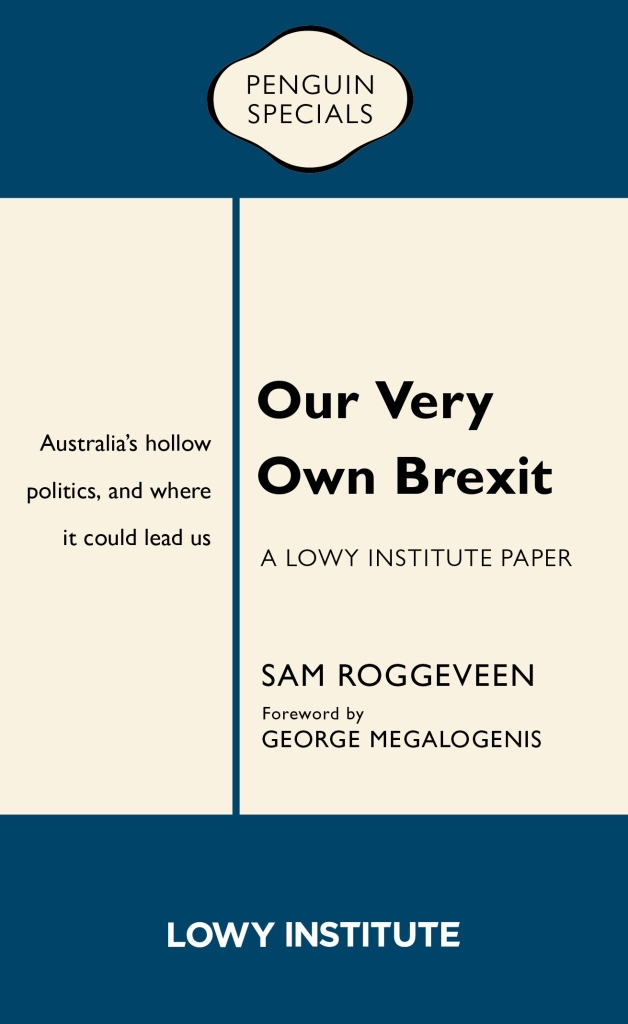A review of Sam Roggeveen’s Our Very Own Brexit., originally published on GoodReads in November 2019.
How vulnerable is Australia to the disruptive political developments in other Western countries – Trump in the US, Brexit and Corbyn in the UK, and the electoral devastation of former ruling political parties across Western Europe?
Sam Roggeveen, from the Lowy Institute in Sydney (disclosure: I have known Sam for many years and we had a recent private online discussion about his argument in this essay), is cautious but sees significant political risks. As in other countries, the Australian political parties that have been the foundation of post-WW2 stability have shrinking bases of support, leaving them open to internal insurgencies and political rivals.
One symptom of the old political system’s weakness, a rising vote for independent and minor party candidates, has been present for a long time. I wrote about this, as did many others, in the early 2000s and last year my Grattan Institute former colleagues published a detailed analysis of the characteristics and beliefs of minor party voters.





